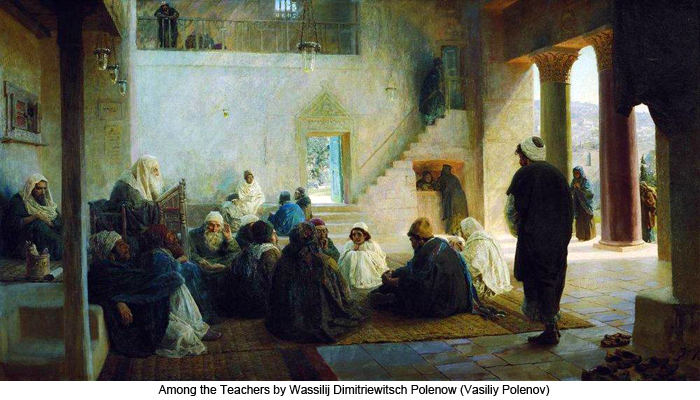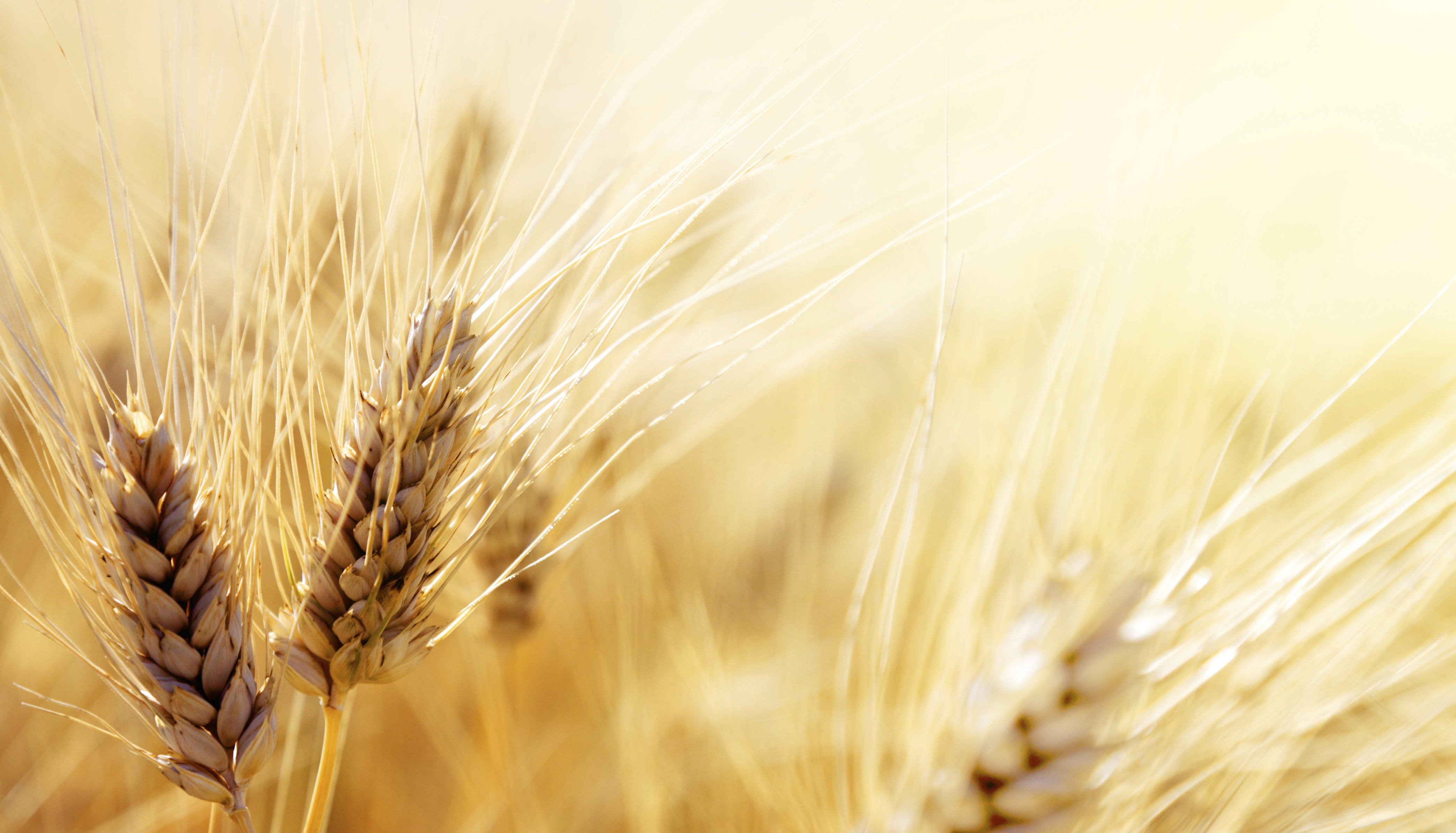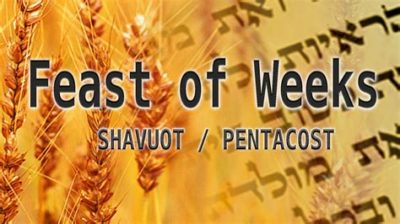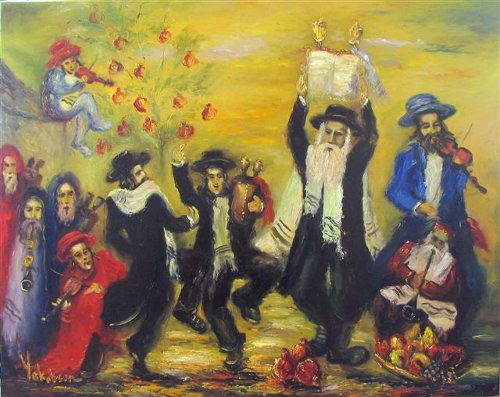“Ed” Hebrew word pronounced “Eyd.” It means “witness.”
“Edah” Hebrew word for “Assembly.” This word is pronounced “Eydah.” A feminine word. It is the Hebrew word that gets mistranslated as “church” in what Christians call the “New Testament.” (Eydah: HIS Bride! Rev 21:2 And I, Yocḥanon, saw the set-apart city, renewed Yerushalayim, coming down out of Shamayim/the heaven from Eloah, prepared as a bride adorned for her husband.) It is one of the most occurring words in the Torah. It is used in the Torah of Moshe (Law of Moses) as a title for Yisra’el. The children of Yisra’el are called throughout the whole Torah. (For example, see Exodus/Shemot 12:3 “Speak to the Eydah(Assembly) /Church of Yisra’el.”) This is what the word meant to Messiah in the first century. It meant “Yisra’el.” “Church” thus is a false word, a made up word. A word used by the ancient church fathers to argue that Yisra’el is no longer the people of Eloah (the Greek word “ekklesia” means “elect/chosen people”) and the new people of “God” is the “church” that “Jesus” made. The “Assembly” of Yisra’el was not born on Pentecost, but with Pesach (See Shemot-Exodus Chapter 12). Again, look in a concordance, Yisra’el is called “Eydah” (Assembly) dozens of times in the Torah. This word has been corrupted by church men.
“Edat” or “Adat” Hebrew word pronounced “Eydat.” This word is the same word as “Edah” above. However, this is the feminine singular construct form. The Hebrew Language does not have a word for “of.” In Hebrew, this is expressed in the construct relationship, and “Edah” is a feminine word. Therefore, “Adat/Edat” means “Assembly of”
“Moed” This is a singular word, it means “appointed assembly.” This word is a noun, derived from the word “Edah.” “Edah” in Hebrew spelled ayin, dalet, heh. “Moed” spelled mem, ayin, dalet. The ayin and dalet are the root word. Moed thus a time in which the assembly must meet. This term used first in the TaNaCK in, Bereishis, Genesis 1:14. Eloah put the sun, moon, and stars in the sky to tell all humanity when His “moadim” occur, (“Moadim” is the plural of “Moed”, see below). The word “moadim” used throughout the Torah/Law (for great examples, see Vayikra, Leviticus chapter 23) as the word for the “appointed times” of Yisrael. They are Yisrael’s moeds so to speak. In other words, the Scriptural truth behind this, the true “Assembly” of Yisrael, meet on the moed of Eloahh discussed in Vayikra- Leviticus 23. Thus, as stated above, when the “Edah” meets on a “Moed” she is a “witness” (“ed”) to the world of Eloah’s order and plan for man, these Moadim, represent significant events passed and future, whether it is seventh day 1. Sabbath Shabbaton, 2.Pesach, 14th of Aviv Passover, 3.Chag Matzo, Unleavened Bread, 4.Wave Sheaf, First Fruits, 5.Chag Yom Shavuot, count seven Shabbats from the day of the wave sheaf and the morrow of the Shabbat is Yom Shavuot, count 50 days 6.Yom Teruah, Trumpets, 7.Yom Kippurim a Sabbath Shabbaton, 8. Chag Sukkot, Seven Days and the Eighth Day a Miqra Qodesh, and Rosh Qodesh, Renewed months, Bamibar Numbers10: 10 and 28:11.
“Moadim” The Plural of “moed” above. This Hebrew word means “appointed time.”
Therefore, “EDAT MOADIM” means “Assembly/Witness, Eydat of the Moadim.”
Defining the Moadim a noun, Hebrew nouns orginate from three letter verbs with few exceptions and we see this in the word Shabat a prime root, a verb.
Shabat is the verb form composed of shen-beyt-tav, by adding a dot in the beyt the beyt is doubled and now the word becomes a noun spelled shen-beyt-beyt-tav-Shabbat, the seventh day.
Shabat verb form gives us the permitted and not permitted, the day of Shabbat, Beresheeth-Genesis 2:3 the verb form used and the day identified and Eloah barach-blessed the seventh day and made it kadosh. The second time shabat is used it is translated as cease in Beresheeth-Genesis 8:22. While the land remains seed time and harvest time and cold and heat, summer and winter will not shabat-cease-rest, meaning never ending.
Shemot-Exodus 23:12, (this verse tells us that there is a barach in keeping this day), six days you shall work and on the seventh day you shall shabat-rest or cease, and your ox and ass and be “naphash“-to be breathed upon, renewed, your sons and maids and the stranger.
Shabbat as a noun, Shemot-Exodus 35:2-3, six days shall work be done, the seventh day shall be to you a kadosh-set apart day a Shabbat of shabbaton-resting to YaHuWaH: whosoever works in this day shall be put to death. You shall not light a fire throughout your habitations on the Shabbat day, (kindle a fire, nor cook). Shemot-Exodus 16:23 And he said, this is that which YaHuWaH said, tomorrow is the Shabbaton-rest of the kadosh-set apart Shabbat to YaHuWaH: Bake what you will bake today and cook that you will cook and that which remains lay aside until the morning, “Shabbat”.
Beresheeth-Genesis 1:14, Rosh chodesh-Renewed Month and Eloah said, let there be lights in the firmament of the shamayim-heavens to divide the day from the night. And let them be for signs and for moadim-appointed times, and for days and years.
The moadim have a set time revealed in scripture, and recorded in the Hebrew calendar. The head, or beginning of months is defined in Shemot-Exodus 12:1-2 and 13:4 labels this month as Aviv. This will always be the time of the year when the barley is ripe, when the milk stage has passed and the starch has began to set-harden in the grain heads.
The set Moadim of Yod Hey Vav Hey YaHuWaH, are revealed in Vayiqra-Leviticus 23:1-2. These you shall proclaim as a Miqra Kodash-assembly set apart, at the appointed Moed-set time. Shemot-Exodus 23:14-17 three times in a year shall you oberserve a Chag-festival to YaHuWaH, and Devarim-Deuteronomy 16:16.
Vayiqra-Leviticus 23:3, for six days work is to be done and on day seven is a Shabbat Shabbaton..
Vayiqra-Leviticus 23:5, Peasch in the first month, 14th day between the evenings (starting the evening of the 14th and continuing on into the 15th, Shemot 12:42, an observance guarded) is the Peasch, to YaHuWaH. And the guidelines are revealed in Shemot 12:42 through 13:10 and verse 8, your children are present. Shemot 10:1-2 the reason for the Haggadah-Telling, and this day is a memorial the 15 of Aviv Shemot-Exodus 12:14.
Leviticus 23:6, HaMatzot-The Unleavened Bread and on the 15th day of this month is the first Chag-Festival of Matzot to YaHuWaH seven days shall you eat unleavened bread-matzot. On the first day you shall have a Miqra Kodash-assembly set apart, any work of service you shall not do. And you shall bring an offering near for a fire offering to YaHuWaH seven days. And day seven is a Miqra Kodash-assembly set apart, any work of service you shall not do. Shemot-Exodus 12:14-17, and this day shall be to you for a memorial, a Chag-Festival, and olam-forever by a chuqqah-law. Verse 16 allows for food to be prepared on the days of shabbaton-rest.
Vayiqra-Leviticus 23:10-14, The Wave Sheaf offering is the harvest of the first sheaf of barley when you come into the land, the morrow after the Shabbat (the 26th of Aviv), for verse 14 says you shall eat neither lecham-bread or roasted grain or new grain, not shall you eat of, until you have brought the offering to your Eloah, it is olam-never ending in all your dwellings (wherever you may dwell beyond the land). Yahushua-Joshua 5:10-11 Here we see that all Yisra’el ate the grain of the land the day after Pesach the 26th, the 15th ends the Pesach and starts unleavened bread. History is very clear that this day of counting the omer began on the 26th of Aviv, the morrow after the Shabbat of the moed of unleavened bread. Josephus records in Book 3, 10:5 Antiquities of the Jews how the Chag-festival was observed on the 16th. There is certain confusion from history that the day of the cutting of the omer and the waving of the sheaf of barley was the 16th of Aviv. According to the findings of DSS dead Sea Scroll, we discovered and confirmed that The Wave Sheaf offering is always on the 26th of Aviv, the first day of the week after the 7 days feast of Unleavened bread!
Vayiqra-Leviticus 23:15-21, on Yom Shavout-Festival of Weeks, the second Chag, you shall number to you (you are counting the fifty days and seven weeks) from the day after the Shabbat (of the unleavened feast) , from the day you bring in the sheaf of the wave offering, seven Shabbats perfect they shall be to the day after the seventh Shabbat (week). And you shall number fifty days (fifty days from the day you bring in the wave sheaf) and you shall bring a minchah-tribute, or present of new grains, foods to YaHuWaH. Out of your dwellings you shall bring in lechem-bread, a waving of two loaves of two tenths (ephah) of flour and they shall be baked with yeast, bikkurim-the first of the harvest to YHVH. (This is the only offering made that allows chametz-leavening, representing the sins of both houses of Yisrael). :21, and you shall proclaim on this same day, a Miqra Kodash-assembly set apart it is to you. And no work of service you shall do, it is a chuqqot-law, an olam-never ending in all your dwelling, in all your generations. Shemot-Exodus 34:22, this is the wheat harvest. Devarim-Deut. 16:9 count seven weeks for yourself. Begin to count when you put the sickle to the grain. You are to count from the cutting, not the wave offering as taught. And in the lands, Shemot-Exodus 23:19, the Firstfruit of the lands-adamat-your and Devarim-Deuteronomy 26:1-2, Then verse :3-:11, saying the avowal and :12-:19, are added in the third and sixth year of the seven year cycle for third tithe.
Vayiqra-Leviticus 23:24, On Yom Teruah, spoke YaHuWaH to Moshe, speak to the sons of Yisrael saying, in the month seven on the first day of this month shall be to you a shabbaton-rest, a memorial day, a clamoring of shofars, any work of service you shall not do and you shall bring a fire offering to YaHuWaH.
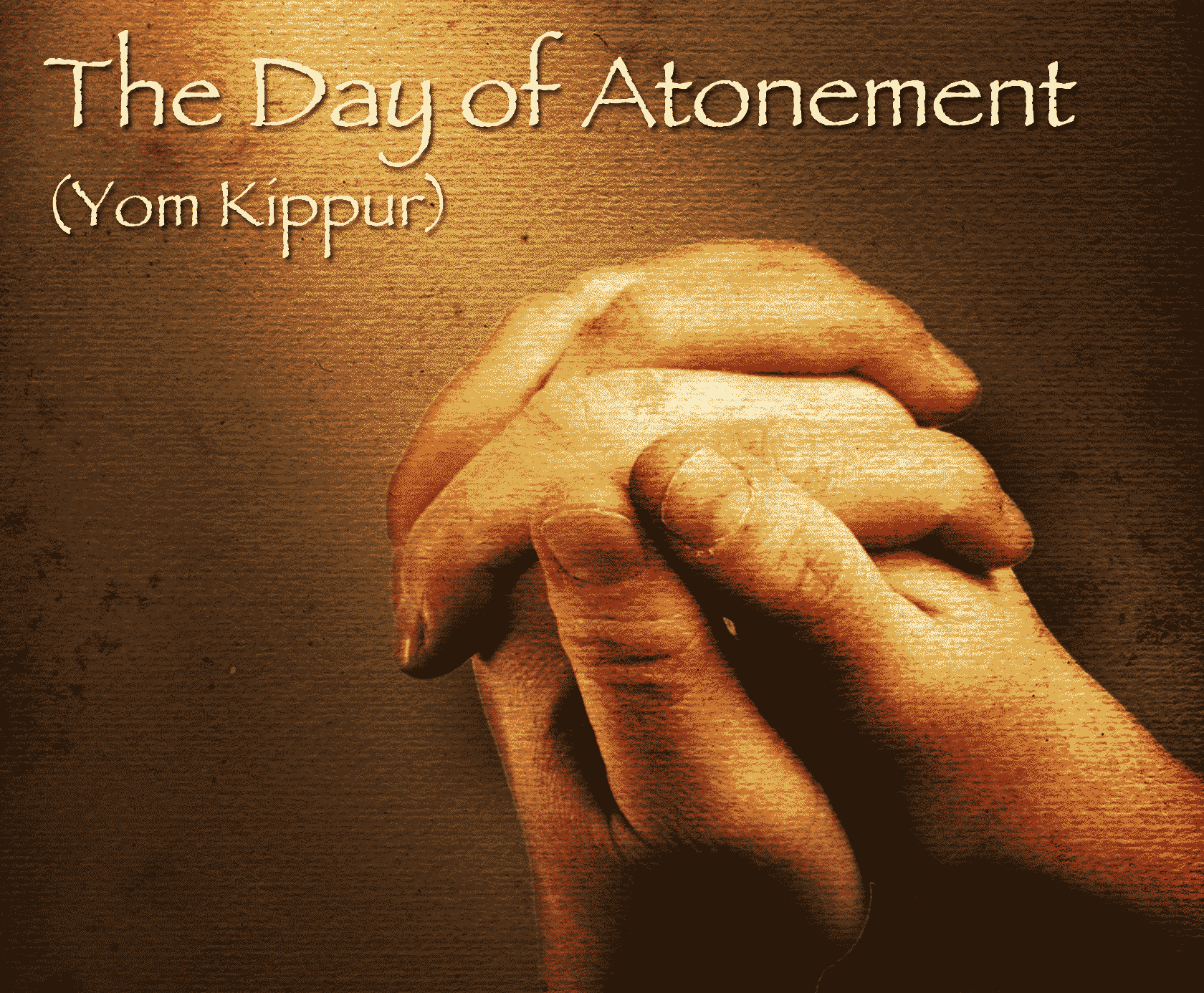
Vayiqra-Leviticus 16:1-34 Yom Kippurim a Shabbat Shabbaton and it shall be unto you a chuqqah-law never ending in the seventh month in the 10 of the month you shall humble yourself and no work do (or cause others) the native and the ger-alien who is staying in your midst. :30 For in this day he (the Kohen Gadol-High Preist) shall kaphar-cover-atone for you to taher-cleanse you from all your sins before YaHuWaH you shall be taher-clean .This chapter brings to Yisrael the reminder of the cost of sin, and on this day the Nation is forgiven and renewed, :31 a Shabbat Shabbaton it is to you and you shall humble yourself a chuqqot-law never ending.
Vayiqra-Leviticus 23:26-32, :32 Yom Kippurim A Shabbat Shabbaton it is to you and you shall humble yourself in the ninth of the month at evening from evening to evening you shall keep your Shabbat.
Vayiqra-Leviticus 25:1-7 and :21, The Land Shabbat, counting begins on Yom Kippurim and spoke YaHuWaH to Moshe saying to the sons of Yisrael, when you come into the land I am giving you. The land then shall Shabat-rest a Shabbat to YaHuWaH. Six years shall you sow your fields and six years shall you prune your vineyard and gather the produce. and :4 And in the seventh year a Shabbat Shabbaton shall be for the land a Shabbat to YHVH. And your fields are not to be sowed and your vineyards shall not be pruned. The growth of your fields do not reap, and the produce of the unkept vineyards do not gather, a year of rest for the land it shall be, verses 6 and 7, explain to who the produce of the land is for and how it is consumed for food. Bet Divre Hayamim-2nd Chronicles 36:21 Yirmeyahu-Jere., 25:11-12 and 29:10, Vayiqra-Leviticus 26:34-35 and verse 43, The land’s Shabbat, and it’s importance to Yisrael and the nations.
Devarim-Deuteronomy 31:9 And Moshe wrote this Torah-Davrim in a scroll and delivered it to the kohanim, the sons of Levi, who bore the Ark of the covenant of YaHuWaH, and to all the zechanim-elders of Yisrael. And Moshe commanded them, saying at the end of every seven years, in the moed-appointed time of the year of release (counting the seventh Yom Kippurim) at Chag-Festival Sukkot, When kol-all Yisrael comes to appear before YaHuWaH your Eloah in the place that He shall choose, you shall read this Torah before kol-all Yisrael in there hearing. Devarim 1:5 Declared this Torah.
Vayiqra-Leviticus 25:8-10, The Yovel-Jubilee Year and Yom Kippurim And you shall count for you seven Shabbats of years seven years seven times, and shall be to you seven days of Shabbat years to you forty nine years. And you shall sound the shofar a signal in the month seventh in the tenth day of the month, in the day of Yom Kippurim shall pass a shofar through out all your lands. And you shall make Kadosh the fiftieth year, and proclaim liberty in the land to all its dwellers. A Yovel-Jubilee it shall be to you and you shall return every man to his possession and each to his family you shall return. Verse 11-22 explain the food and its increase the sixth year for these festivals and the Bracha-blessings for following these Torah-instructions. For reference to Sabbatical year and Yovel-Jubilee year see Josephus Complete Works, translated by William Whiston, A.M., Library of Congress card number 60-15405, pages 702-705.
Vayiqra-Leviticus 23:39-44, The third Chag-Festival of Sukkot-Booths, And on the 15th day of the seventh month when you have gathered in the increase of the land. You shall celebrate a Chag-Festival to YaHuWaH seven days; on the first day shall be a Shabbaton-rest and on the eighth day shall be a Shabbaton. Devarim-Deuteronomy 16:1-17, Shemot-Exodus 34:24 These scripture you must review. Devarim 31:9-13 And in the seventh year, the year of release when you appear before the face of YaHuWaH at this Chag-Festival you are to read the Scroll of the Torah-five books given through Moshe.
The use of the words Shabbat Shabbaton with these days, seventh day Shabbat and Yom Kippurim and the Land Shabbat, a much heaver weight to these days!
The formulation of the calendar of Yisra’el in the Galut-Diaspora: The lunar calendar was formulated according to mathematical and astronomical calculations in the time of Hillel II, and adopted in the middle of the fourth century. The publication and adoption made it possible for Yisra’el to know when to observe the moadim and kol-all Yisra’el would observe these moed-appointed times on the same days as it is to this day, according to Torah of Moshe. This provides unity for Yisrael in worship of YaHuWaH Elohim to be one in Yahushua, while we wait for the return of Melech-King Son of David Meshiach Yahushua YaHuWaH Eloah. However, we observe the calendar shown from DSS dead Sea Scroll!

A look back at the Chag-Festival of Sukkot-Booths, in the first century a ceremony was performed in the Temple in Yerushalom, called the Water pouring Ceremony. It involved pouring out of water on each of the days of the Chag, except the first day of the Chag and the weekly Shabbat in the Chag, This ceremony seems to refer to those in the first 4000 years before Meshiach, who were washed in the torah-word and held captivity (for good), till Mashiach’s coming, the song of Deborah, Judges 5:12, and Ephesians 4:8. The Priest who was designated would gather water from the Pool of Siloam and at the Altar in the Temple pour the water into a silver vessel on the corner of the Altar. And each day the Priest would circle the Altar one time waving the four species of Vayiqra-Lev. 23:40. On the seventh day they would wave the four species and circle the Altar seven times, making the sound of a rushing wind (the coming Kadosh Ruach). Because of this different ceremony it received a special name Hoshana Rabbah-save now Great, so this day is the Great save now. These ceremonies were never performed on the eighth day. This eighth day following the Chag-of booths in Vayiqra-Lev. 23:36, is called Shemini Atzeret meaning the eighth day of assembly and the ceremony of Simchat Torah-Rejoicing with Torah (the Torah is opened anew). The number eight in scripture relates to the regeneration or new beginnings, the new heaven and earth the great day of YaHuShua-salvation (the book of life is opened). I hope you will see the sod-hidden that is in these ceremonies and this scripture Judges 5, the Song of Deborah as Mashiach’s return is also in this song along with His route and the kadosh-set apart ones who are washed in the living water-Torah and kadosh-set apart Spirit.



